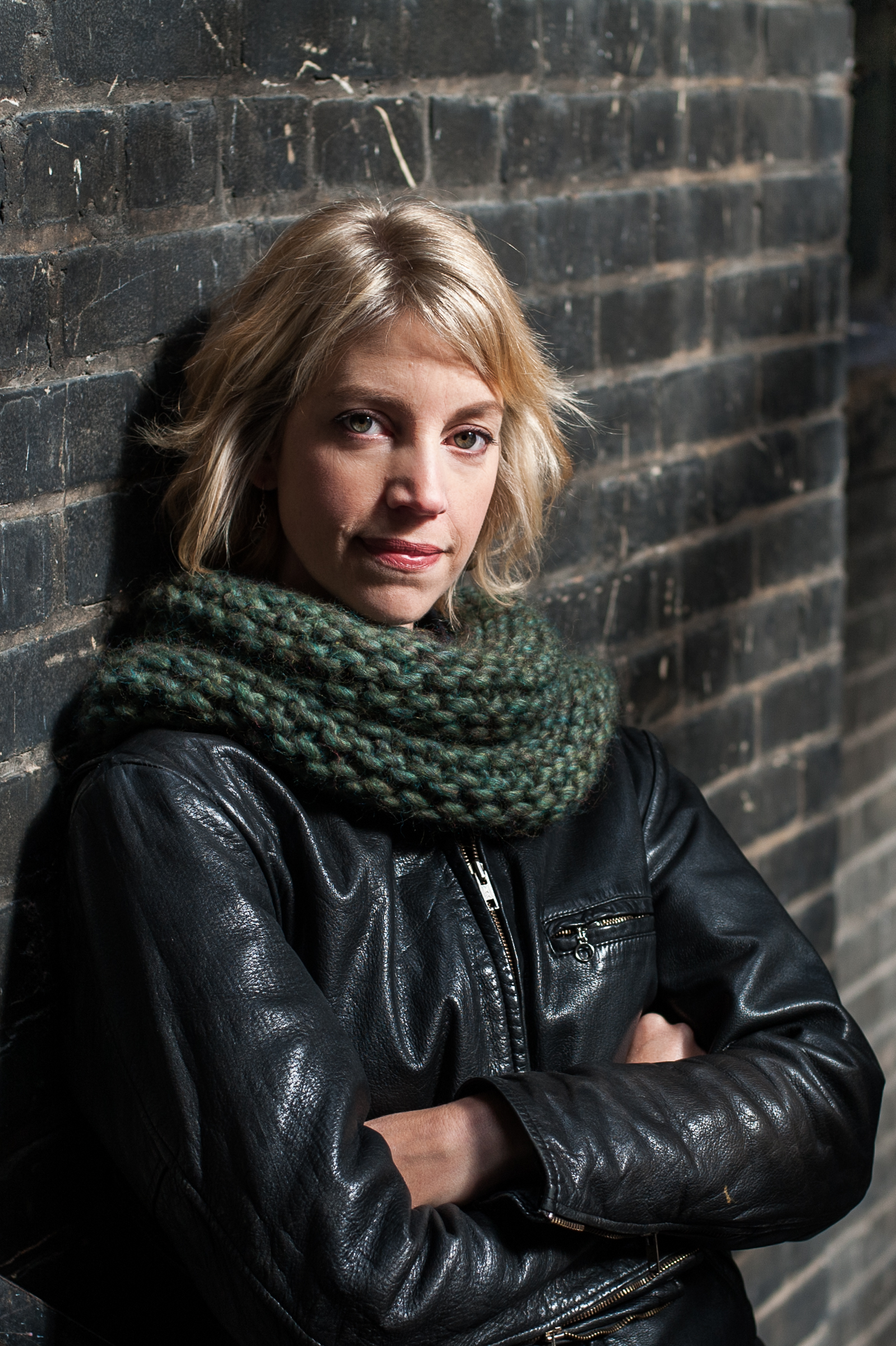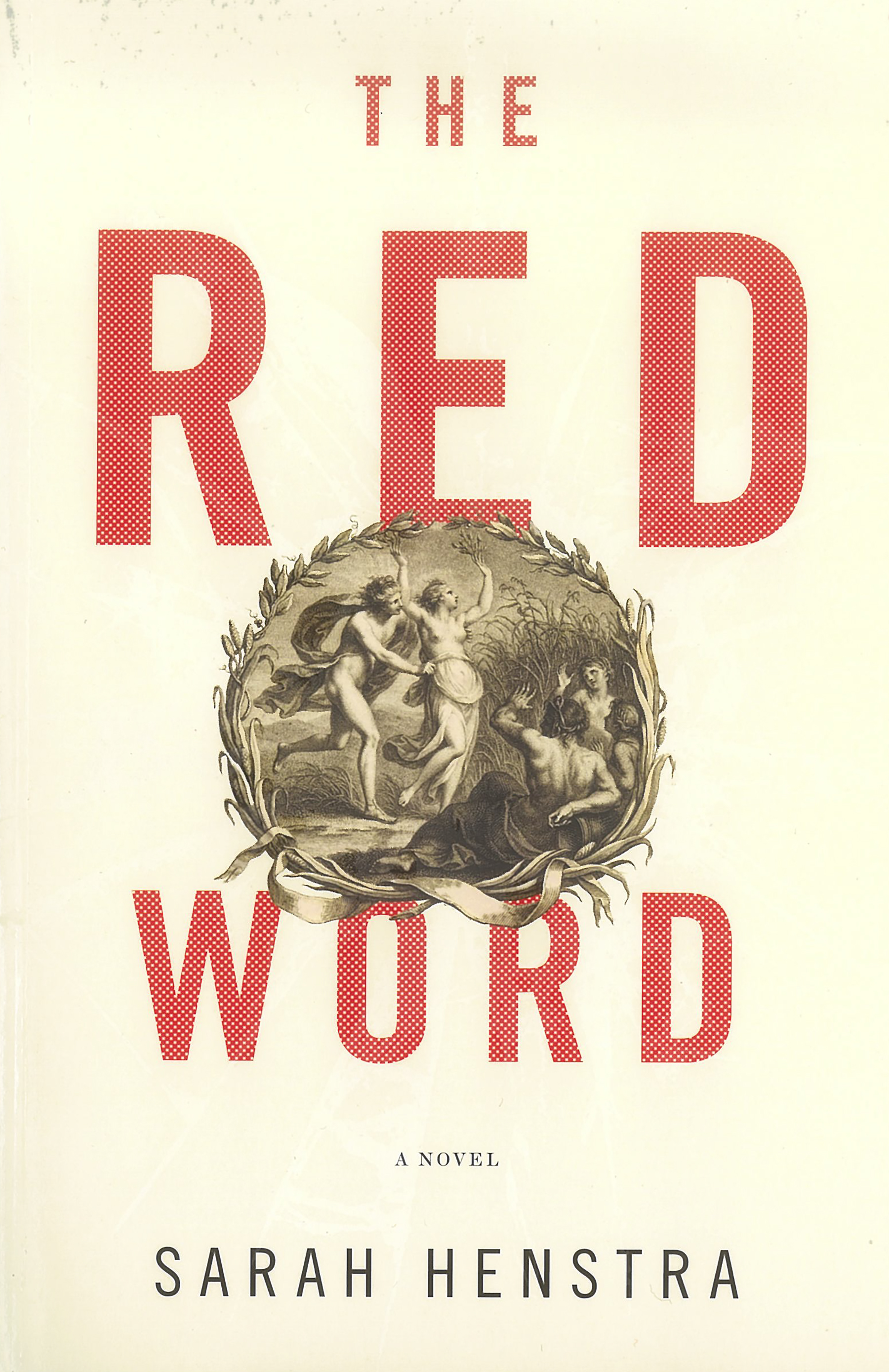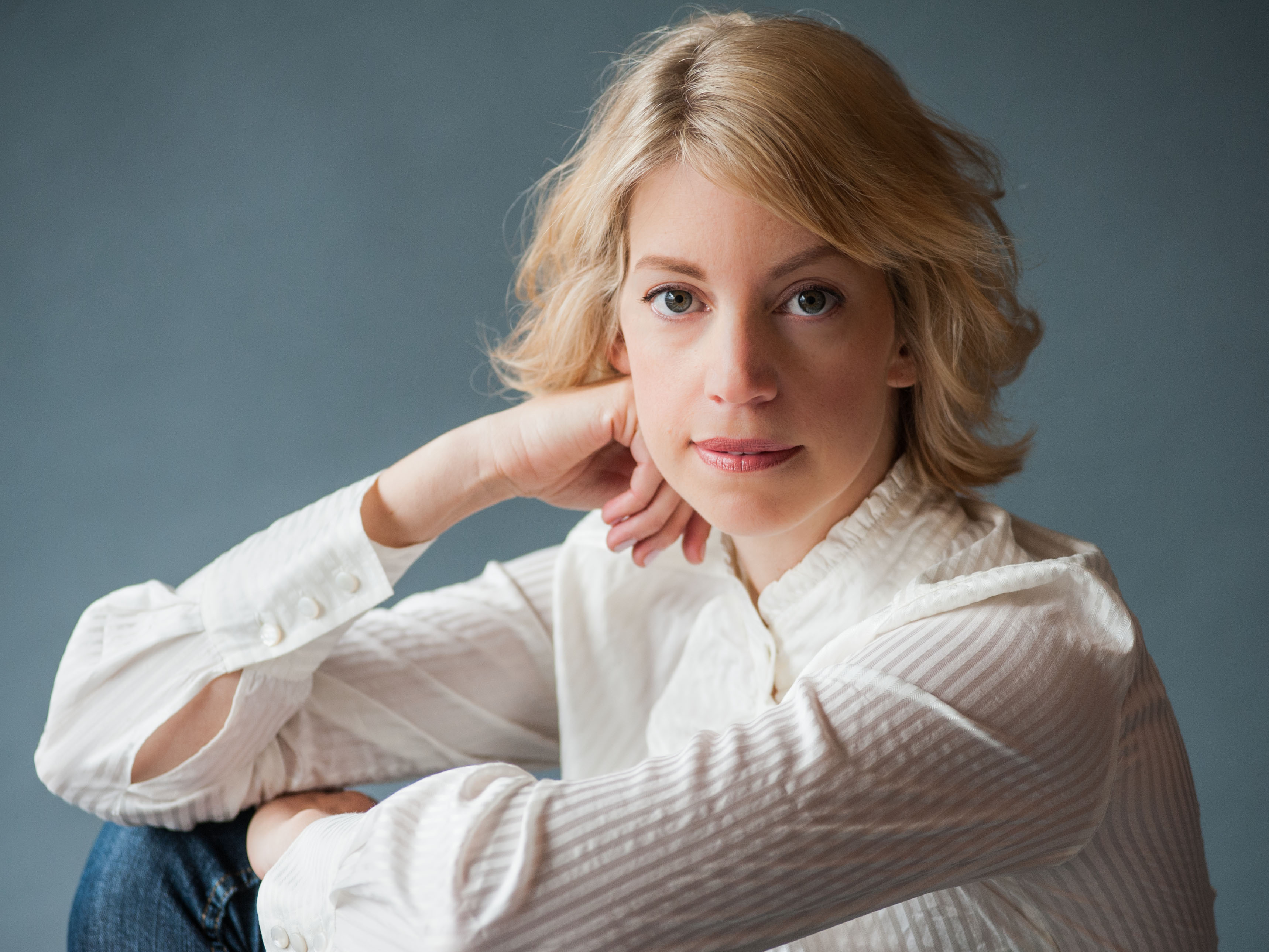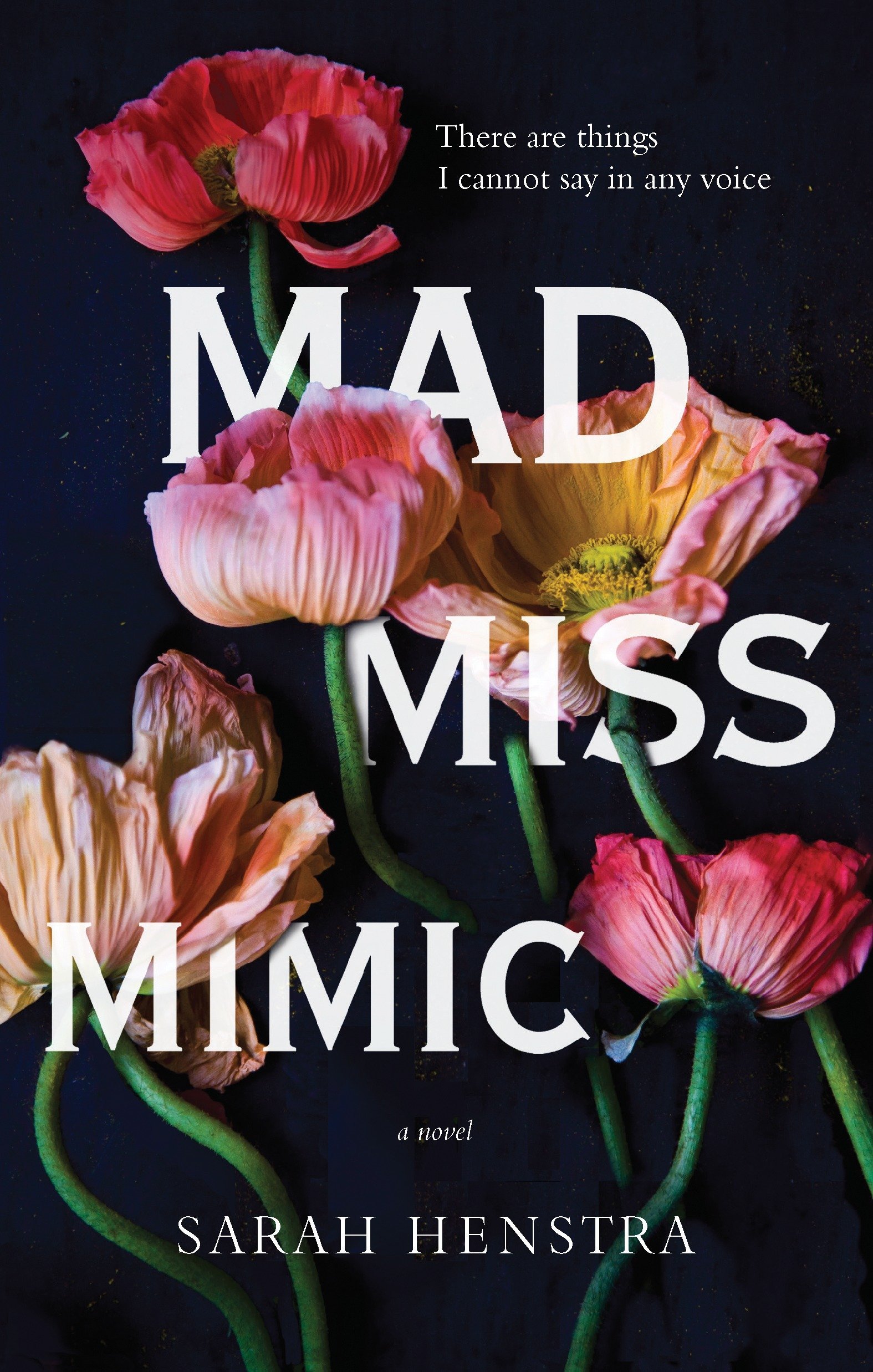
When I sat down with Sarah Henstra at the cosy, chandelier-lit “Wallflower” in Parkdale, it became apparent to me early on that everything about Sarah- her stories, her job, her life, have been shaped by love for literature. This fall her second novel, “The Red Word,” was the recipient of the Canada Council for the Arts’ Governor General’s Literary Award for Fiction. The award recognizes outstanding Canadian literary works every year in fiction, non-fiction, drama, poetry, young people’s literature and illustration, in both English and French.
Sarah’s first book “Mad Miss Mimic” was published in 2015 and is historical fiction for young adults. With the “The Red Word,” Sarah has recreated the complicated landscape of university life that is many times steeped in misogyny. The book is set in the world of academia and uses academics to hold a mirror to academic institutions and the cracks therein. The arrival of the book is timely as the mainstream is now thirsting for narratives that help us understand current conversations around the #metoo movement and gender inequality in general.
“The Red Word’s” protagonist, Karen Huls, gets embroiled in an escalating conflict between her feminist housemates and the fraternity next door to which the boy she is interested in belongs. The book takes a close look at the gender-based socio-political order of campus life through Karen’s unassuming newcomer’s eyes. Sarah uses tropes from classical Greek mythology to deepen her exploration of gender dynamics, the most elegant of which sees her opening chapters with cleverly contemporised invocations of the Muse. She also lets Karen experience myths through the passionate retellings of an influential feminist professor. Through these creative revisitations of myths and classical themes, Sarah highlights the absurdity of our current patriarchal systems without having to try too hard.
Sarah is currently a professor of English at Ryerson University in Toronto where she teaches courses on fairy tales & fantasies, gothic horror, creative writing, and psychoanalysis & fiction. As a child, Sarah grew up in Abbotsford, B.C. and moved to Toronto when she was twelve. Her academic pursuits in literature took her to McMaster University, the University of Western Ontario and the University of Toronto. I chatted with Sarah about origins of “The Red Word” and her personal philosophies on academics, writing, feminism and gender politics.
How did the concept for “The Red Word” come to you? Did stories from your time at University inspire it?
I always wanted to write a novel set on a university campus. If anyone could write one, it would be me because I’ve spent so much time on university campuses! In my undergrad, I was quite a passionate feminist and a student activist. I was also friends with jocks, sports teams and people who like to party. There were overlaps amongst all these groups but there were also some real divisions. So I wanted to write about a character who moves between all these quintessential social groups.
When you were writing the novel was the conversation around rape culture underway? Did you feel like you were taking a risk?
I knew that I was treading on dangerous territory. I was constructing a plot around a scandal at a fraternity and there were a lot of scandals happening at the time in which sports teams were accused of gang rape. There was hazing behaviour in fraternities and sexual abuse happening in the military. I was inspired by these stories and started thinking about male-dominated cultures which the system protects. Fraternities are protected by university structure, especially in the States.
The conversations we’re having now around #MeToo and sexual assault were not as prominent then so I didn’t quite feel like I was wading right into the middle of headlines. I would feel that if I were writing the novel now. It was different when I was writing the book five years ago. I would have had to be more careful about my vocabulary now too.

You are interested in classism. What motivated your choice to draw parallels between Greek mythology and Karen’s story? What do you find fascinating and relevant about Greek mythology?
The world of frats and sororities is called Greek life in the States. They all have Greek names and letters. There’s already the pun and overlap with the idea of frat life being “classical”. I was interested in those parallels. Male only and female only cultures go back to Greek mythology, where only men were allowed to be part of Plato’s republic and women were off to the side. Our university system is similarly old fashioned and classical. Think about the architecture, the marble, the columns, and the ivy. There’s something undeniably classical about the Ivy League system.
When I was a student many of the popular gender theory books used myths to talk about where our ideas about gender started, like Naomi Wolf’s the “Beauty Myth”, and Betty Friedan’s “The Feminine Mystique”. Like “Adam and Eve”, which is a Judeo Christian myth, where do we get this binary of male and female and why is it so inflected with power imbalance? You have to go all the way back to our origin stories as a culture to find out. That’s why I was drawn to myth and folklore.
I liked the idea of university students learning about these myths for the first time and seeing them in black and white terms. Like “look at the Trojan War! No wonder things are so unequal!” I don’t think it’s that simple but I can see how students learning it could think it. You’d start seeing things in such black and white terms that it would seem really obvious what you needed to do. And that’s where you get extremist behaviour.
The juxtaposition of something that is ancient with something contemporary highlights how little things have changed.
Yes. Which can be a bit shocking and can lead to a feeling of hopelessness. There are people who talk about gender roles as being inborn. They use that as an argument to not make changes. That’s not what I’m interested in – that there’s no point in lifting a finger. That is one side effect of studying gender in mythology, you feel like we haven’t come anywhere in 3000 years.
Now that you teach at a university what differences do you see in the atmosphere of academia and university life than when you were a student?
It’s hard for me to say because I’m on the other side of the table now. As a professor I have a lot of conversations with my students but I don’t get to see what they’re doing at the pub or at the keg parties. In the novel the vast majority of the scenes take place off campus. I do think as a professor that the university has more policies and pays more attention now to what students do outside of the classroom. There’s more attention paid to the student code of non-academic conduct. There are public awareness campaigns about avoiding sexual violence, how to be an ally to one another. There are posters at Ryerson about how to keep each other safe and around consent. There is greater public awareness, but whether that translates into the private spaces of pubs and clubs, I don’t know.
In my classroom, my students teach me a lot, in particular, about gender expression and non-binary gender, about the spectrum of sexualities and genders, and ways to treat each other with respect. If the binary of gender is at the root of men being higher than women, then the real way forward is to break up that binary, show all the shades of grey, and destabilise the differences between male and female.
What makes university campuses the best place to have these conversations?
It’s a place where, ideally, debate is encouraged and freedom of speech is protected. Where academic freedom is something people like me are supposed to have in their jobs, where we won’t get fired for saying something in the classroom or for publishing it in a book. The structure of a liberal arts education is to support questioning. The downside is that sometimes a university operates like a closed society or a corporation where a scandal or criminal act will be hushed up and dealt with internally. This is worse in the States. Canadian universities are publicly funded so there is more transparency and public accountability with them.

Can you tell us about your academic background? What motivated you to take the direction that you did? Which areas of study did you enjoy the most?
I always loved school. A lot! I wanted to go into medicine when I was an undergraduate. I took the arts and science program at McMaster where you do 50% arts courses and 50% science. I’m really glad I did that. Halfway through I switched to English. All I ever did in my free time was read novels. What was I doing taking all these organic chemistry courses? I ended up doing the honours program, then the Masters and then the PhD. In my PhD, I studied 20th century British fiction mostly focused on contemporary fiction. I was interested in teaching and research. I wanted to be paid to write scholarly articles. I always wanted to do creative writing but I put it to the side for my dissertation, for which I had to build up a portfolio of scholarly articles so that I could get my tenure at a university.
It was in my personality not to be a risk taker. People I knew were cobbling together jobs and freelancing as you do when you’re a writer. It’s not like I wanted to be a professor to make money, but I knew I liked being a student. I was getting funding for being a student – fellowships and scholarships. For me this was the safe path. At one point, I realised that unless I wrote a novel no one was going to come along and say “so how about that novel”? If it’s ever going to happen how do I make it happen?
I always wanted to publish a novel in my 20s. I just assumed I would. Then my 20s passed. I turned 30. Then I was 35. Then I was like “okay what’s going on?” I started to get impatient with myself and felt the passing of time. I felt that it wasn’t going to happen. What was I waiting for? I thought I had plenty of time. I just thought it would happen.
At some point I realised it doesn’t just happen. You have to work hard to make it happen.
When you’re a student there’s so much structure. As a professor there’s so much structure. The students are there in the class. Are you going to show up and teach them? Look at all this marking. Are you going to do it? But with creative writing, there’s this novel you’d like to write but there’s no urgency. You have to set up structure for yourself. That’s something I had to learn, I couldn’t get that structure from the outside. I had to make it and be self-disciplined.
How did you balance novel writing with your academic career? How did you make time for it? Did one feed into the other?
I’m very lucky because my job gives me time to write, if I make the time. I also have kids and a lot of stuff on the go, just like everyone else. The worst times I’ve ever had in terms of my writing life is when I’ve cleared my whole calendar and I’ve decided all I’m going to do this month is write. Or I’m taking a year off.
I did this in the first year of my undergrad. It was my first attempt at writing a novel. I took a year off, moved to Holland where my friend was living and I said “I’m going to write a novel”. And I just didn’t. I couldn’t. I was blocked. I was lonely and bored. Every time someone would come through from Canada I would spend a week with them, and the whole year went by. I didn’t write anything expect for pathetic little attempts that made me really depressed.
I need structure hemming me in in order to be productive as a writer. I can’t deal with open empty time. If I have to squish writing into a busy schedule it happens but if I have all the time in the world, I will never get to it. So I write in the early mornings. I get up before the day starts and spend an hour or two hours writing. I might then go to bed early or I take a nap later. That’s a big technique I use.
I also have a couple of writer friends who I meet in a cafés when we have three hours on a Saturday morning. We won’t talk about our writing or read each other’s work. We’ll have a coffee and then we’ll just sit down and write. It’s like having a workout buddy. One of the anchors of my writing practice is having another person to share it with.
What are your favourite places to write in the city?
My newest favourite place is over on Roncesvalles and Howard Park called “Coffee and All That Jazz”. It’s a little café with a little extra room attached to it with tables. I mostly write in cafes. I put my earbuds and work. I don’t know why but I can’t write at home. I just get up and do dishes or get up and put laundry in, check email. I can’t focus. When I’m at a café I have to shut out things around me. When I show up there’s a time limit. I know I have an hour and a half and that’s it. So if I’m going to get any writing down it’s going to be in that hour and a half. I need those time limits and those constraints. Obviously it takes forever to write a novel but it really is the magic of slow accumulation for me.
What part of the novel writing process do you most enjoy and what would you say is the most trying part? How do you get through those?
I really like it when I have a good word count on my computer and feel it grow. It sounds so primitive. It’s not even about “what” I’m writing. It’s about the fact that I am building up a project. I find that very satisfying. Seeing that file grow over the span of a couple of months, in terms of word count, and saying “I’ve almost got a novel here.” Messy as it is, unfinished as it is, I know I’m sitting on something that I’ve built. I love that feeling. And that nobody knows about it! I like the secret-keeping of writing new things. I’m the only person dwelling in this world of ideas. That carrying around of a secret world feels really delicious to me.
Right now I have a complete first draft of the new project that I’m working on. I have written to the end but it’s full of holes. It’s messy and chaotic. So what I’ve done is started again. My job now is to weave it all together into a story that is readable. I’m not rewriting every word but I’m moving stuff around. It’s not that I hate doing this but I’ve been at this stage a long time and I’ve gotten busy with teaching so it’s dragging out. I’m still missing some of the key answers that I need. Like how am I going to make this key part match up with this other part? I don’t know what the answer is. I’m full of doubts but I have to have faith that I will figure this out- with the help of an editor down the road. But down the line, this is going to become “something”. I just don’t know fully what it is yet and it’s hard for me to operate blindly but there’s no other way for me to do it.

Who are your favourite writers? What styles do you enjoy the most?
I read lots of different genres of fiction. I like thrillers, sci-fi and fantasy. I’m a big fan of Ursula Le Guin. When I read her novels my brain expands and expands. I have a group of female British writers who I really like, Jeanette Winterson, Ali Smith, and A.S. Byatt. Whatever new book they’ve written I buy and read. Those are my role model writers – the more senior female writers. I’m a huge Margaret Atwood and Alice Munro fan too.
Would you say Toronto is a good city to be a writer in? Are there many resources and communities here for writers? How did you build your community here?
The writing community is my favourite thing about Toronto. It’s incredibly vibrant and there are tonnes of writing meetups and reading series. Even if you’re just starting out, you can go to these events to present your first rough work and get feedback. I found an organisation through some friends called the Women Writer’s Salon. It’s an online group that meets a few times a year. I got connected to many women writers through that.
Before all that, I took a creative writing course through the Continuing Studies program at Ryerson University. I met a couple of people in that class who I joined an informal writing group with. I would recommend taking a class and meeting people to write with. It’s a good way to keep up your writing practice even after the course is over.
When it comes to rape culture how important is it to involve men into conversation and how can we do it? Was that one of the goals of the book?
What’s a fiction writers responsibility in terms of spreading a message? In a way, that makes me uncomfortable. This is not a non-fiction book, it’s not a collection of essays. It’s a novel. Of course, I want people to engage with it and feel invested in it but do I want to convince people of a set of socio-political ideals or goals? Is there an ideology in this novel that I’m hoping will come across to women and men? I’m not sure.
I agree with you that it’s hard to get anywhere in terms of social change when only half the population is interested in it. There’s also a cynical part of me that really believes that it’s hard to convince people to give up any kind of power. You kind of have to take it away from them. No one is going to willingly give it up. For myself, I’m starting to learn about that, in terms of race and the privileges of whiteness. I can go on an on about being an ally but when it comes to actually giving up my privilege as a white woman, it puts me in a very uncomfortable and difficult position. When it comes to actually giving up the privilege that I enjoy I’m very conflicted about it.
I feel that it’s the same with men. Asking men to get on board with feminism to a degree makes sense because men suffer under patriarchy too. They are boxed in to this set idea of masculinity. They’re not allowed to express half of their own emotional repertoire. They are forced into positions of hate, inequity, and violence. It benefits everybody to have this conversation about change. I agree with that. But whether my novel is going to do that I don’t know! I didn’t write the book to change people. I think you would have to write an essay or speech for that. What I was deeply immersed in and preoccupied with were my characters and making them feel authentic. Political problems weren’t really on my mind but I was more concerned with narrative problems.
A lot of female writers experience being marketed as “women’s literature”. Did you have to fight that?
No that didn’t happen to me. I think because the novel is so dark it doesn’t fit the genre tag of chick-lit very well. I wasn’t steered in that direction but I did have the experience of an editor in the States being very interested in taking it in the direction of a female driven thriller like “Gone Girl” and “Girl on the Train” which were having a big moment. There was one juncture in the history of this book where had things gone differently I might have revised the book more towards that angle. In the end, the book found a home with a literary editor. If I steered it anywhere, it was toward the literary side over the thriller side.
This is how a book can very much be there in its form but actually take on a different life depending on who markets it and sells it. I had a lot of reservations about taking the thriller route but I’m grateful that I didn’t end up going that way. You write a book that has a death in it and it becomes a thriller. If you have family and drama, it becomes chick-lit. Women definitely get siloed into a separate and lesser market. One author who is navigating those waters is Meg Wolitzer. She’s a fantastic writer. Her book, “The Female Persuasion” is out right now. It shares so many of the same themes as “The Red Word.” I’m not sure how this book has been marketed but I know her previous books were marketed as “chick lit” and there was nothing in them to suggest that they should be categorised as such except that she’s a female writer. It’s so problematic.
You can buy “The Red Word” here.
– Prachi Kamble
